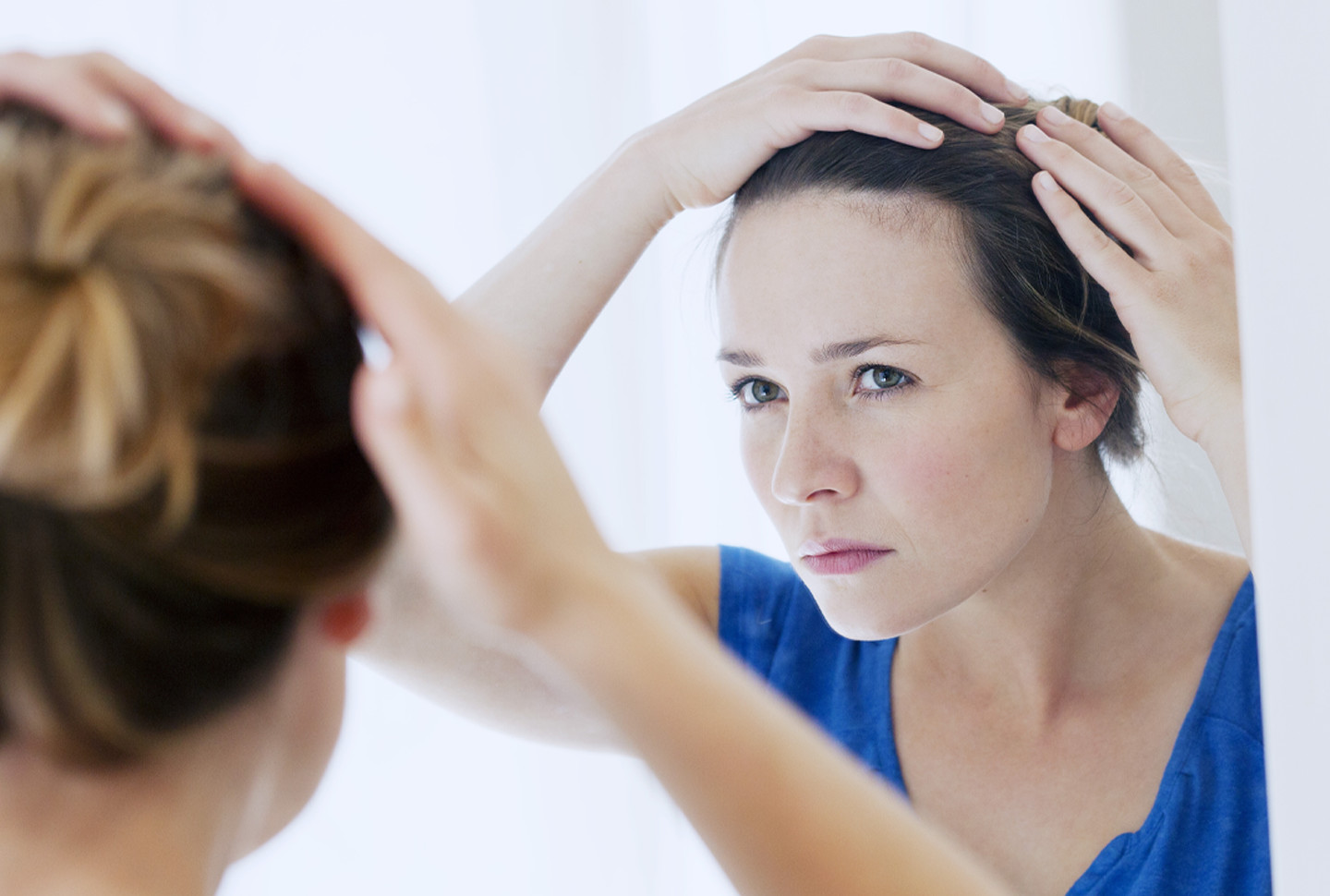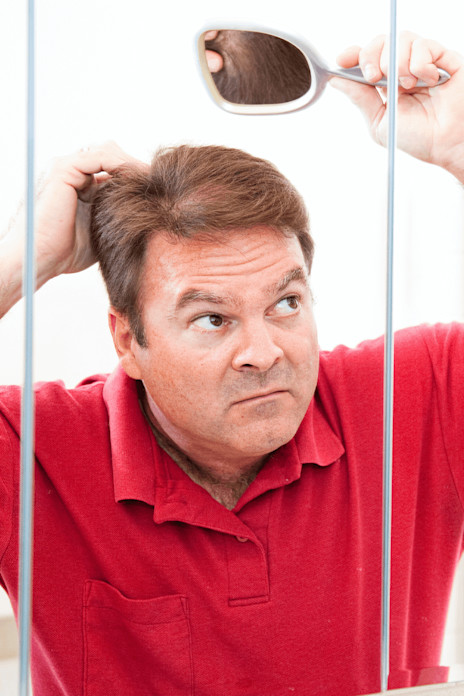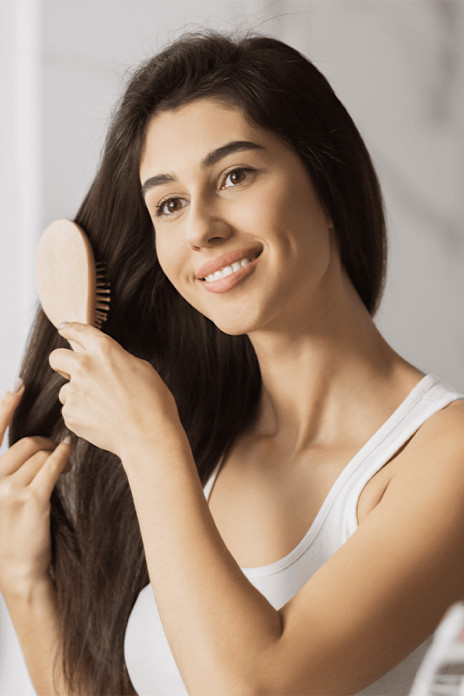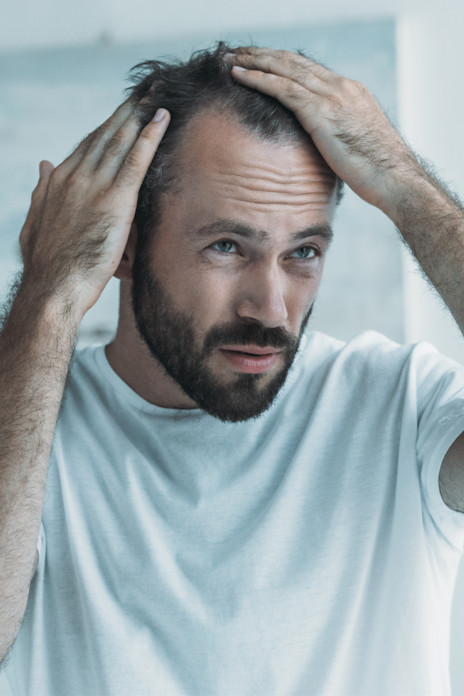THE 5 BIGGEST CAUSES FOR HAIR LOSS IN WOMEN

True or false: Women can have pattern baldness?
It’s true! Pattern baldness is not just reserved for men. This hereditary condition can impact either sex, and be a leading cause of hair loss in women. Unpleasant surprise aside, there are many other factors that could be the cause of women’s hair loss. Chemical hair treatments and restrictive hairstyles aren’t the only culprits; the causes of hair loss can be vast and individual to the person.
If you suffer from not just thinning hair, but moderate to severe hair loss, there are ways to reverse or stop damage in its tracks. Let’s talk about the five biggest reasons women experience hair loss.
1. Your genes
Hereditary quirks aren’t just things like your grandmother’s eyes or your father’s punctuality. As we mentioned before, conditions like pattern baldness, often identified by thinning hair near the crown and edges, can also pass down as easily as eye color or nose shape.
2. Life-stage changes
For most women, life-stage changes usually include hormonal swings that can negatively impact your hair. According to Mayo Clinic, pregnancy, childbirth, and menopause can signal hormonal shifts in your body that can cause temporary to permanent hair loss. While many women report hair growth during pregnancy, likely caused by folic acid and other pregnancy supplements, they report equally as aggressive hair loss postpartum. Menopause and erratic estrogen levels in your body can also cause hair loss, as well as other hair changes, like graying, thinning, and dryness.
3. Certain medications
Many medications have side effects that you should keep an eye on. Common medications that can impact hair loss include certain prescriptions for high blood pressure, heart conditions, depression/anxiety, arthritis, and cancer.
4. Medical conditions
It is commonly known that radiation therapy for cancer can be a huge catalyst in aggressive hair loss. Not only is this true, but the quality of your hair may change if or when it grows back. Other medical conditions, like alopecia can also affect hair loss and the quality of hair, should it regrow.
5. Stress (internal and external)
This type of hair loss is usually more temporary than others but can be triggered by emotional stress (physical or emotional shock), or stress to the hair (constant heat, hair treatments, coloring, blow outs, restrictive/tight hairstyles, etc.).
How to reverse hair loss
It’s important to identify whether or not your hair loss could be a permanent condition. Should you have any general questions, attribute your hair loss to medical condition, or have experienced scalp scarring due to restrictive hairstyles, consult your physician immediately.
If you believe your hair loss to be temporary, try using moisturizing and strengthening hair products, and special hair treatment products to give your hair the TLC it needs and deserves.








